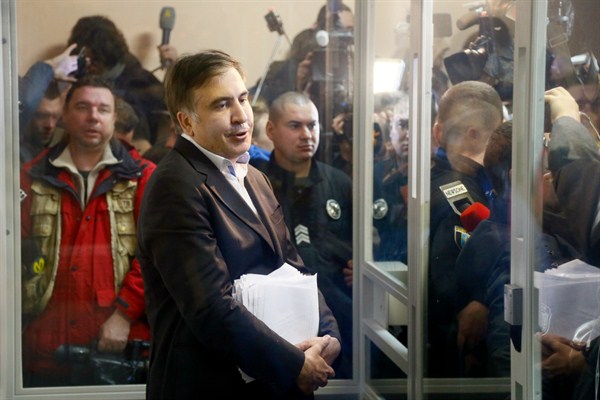The conflict in Ukraine, which has raged for more than four years since the Maidan uprising of November 2013, is often portrayed as a clash between the West, which favors greater integration with Europe and the United States, and the East, which favors ties with Russia. But it is degenerating into a clash of egos jockeying for control of a corrupt, dysfunctional state that outside powers other than Russia are barely invested in anymore.
Consider the case of Mikheil Saakashvili, the controversial U.S.-educated former prime minister of Georgia, who in May 2015 was appointed governor of the Odessa region on the Black Sea by Ukrainian President Petro Poroshenko. Saakashvili, who gave up his Georgian citizenship for the job, promised that he would clean up Odessa, Ukraine’s main seaport and a notorious hub of corruption and organized crime. But as Dan Peleschuk reported for World Politics Review a year into Saakashvili’s tenure, this proved an impossible task, and the relationship between Saakashvili and Poroshenko rapidly soured. In November 2016, Saakashvili resigned, accusing Ukraine’s president of personally supporting corrupt clans in Odessa in a fiery speech, before fleeing to New York, where he had previously lived a curious life in a trendy Brooklyn neighborhood.
Then, this past July, Ukraine stripped him of his citizenship, leaving Saakashvili stateless. A range of opposition figures in Ukraine, including former Prime Minister Yulia Tymoshenko and the mayor of Kiev, Vitali Klitschko, have protested this move, which is legally dubious and seems intended to prevent Saakashvili from becoming a political threat to Poroshenko.

